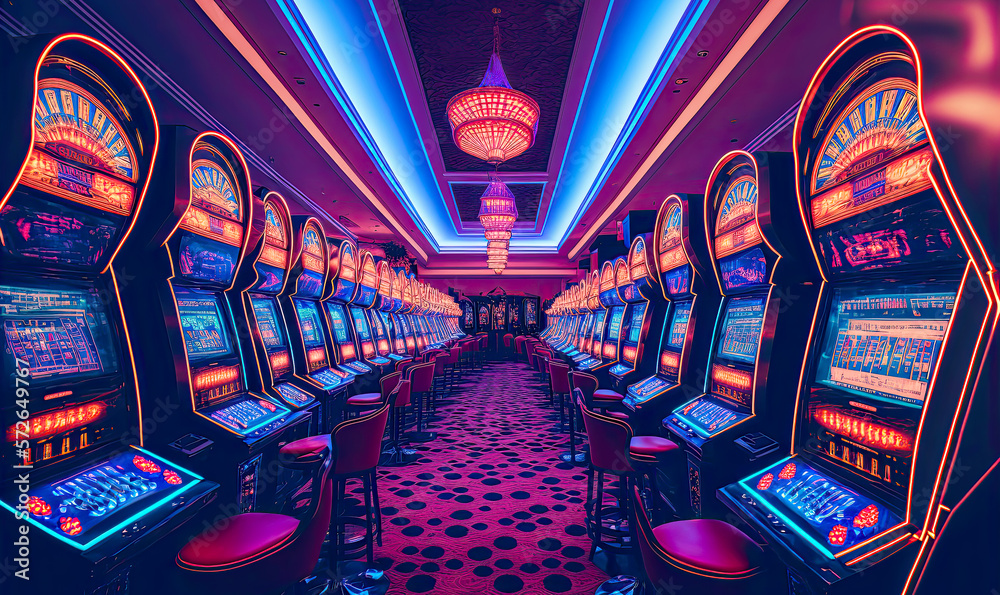
Casino entertainment have long been a captivating source of amusement, drawing millions of players from different cultures around the globe. From the opulent casinos of the Strip to the bustling gambling halls of the Chinese gambling capital, these games serve as a link that unites people across different backgrounds. The allure of luck, tactics, and uncertainty entices not only those seeking to gamble for profit but also those in search of a feeling of belonging.
The influence of casino games extends well beyond the gaming floor. They often represent the cultural standards and beliefs of the communities in which they prosper. Games such as Texas hold ’em, blackjack, and the spinning wheel have woven themselves into the fabric of popular culture, influencing multiple fields from movies to clothing. As we explore this captivating intersection of luck and society, we can comprehend better how these games shape and are affected by the surrounding world.
Chronological Progression of Gambling Activities
The roots of gambling activities can be traced back to ancient civilizations, where betting in various forms was extensively performed. Tic88 In the East, around 2300 BC, a form of lottery known as Keno was well-known, while in old Rome, soldiers would frequently gamble on the consequences of their matches. The notion of using chance for fun and profit evolved over the centuries, leading to the formation of more structured activities. By the end of the Middle Ages, gambling houses began to emerge in European nations, notably in Italy, which presented early incarnations of popular activities still played today.
As gambling increased recognition in Europe, the 17th and 18th centuries saw the appearance of gambling establishments as dedicated establishments for gaming. The first official gambling house, the Ridotto, was established in the city of Venice in the year 1638, featuring games like Baccarat games and Faro games. This era marked a major turning point, as gaming venues began to attract not just the elite but also the expanding middle-tier society. The sophistication of activities evolved, leading to the introduction of new guidelines and modifications that enhanced the play experience.
In the 19th century, the industrial revolution and changes in social standards also transformed the landscape of gambling activities. The introduction of the game of roulette and new gaming machines attracted a more diverse crowd, and casinos became seen as acceptable recreation. This era witnessed the international spread of casino activities, as casinos extended from Europe to the Americas, culminating in the creation of the famous Las Vegas Strip in the twentieth century. The development of gambling activities has progressed into the modern era, integrating technology and online services, making them open to a global population.
# Cultural Importance across Diverse Communities
Gambling games have significant cultural importance across many societies across the globe. For instance, in Las Vegas, the very essence of the urban landscape is woven around casinos, where gaming is not just a pastime but a fundamental aspect of leisure and social interaction. The dazzling lights and lively atmosphere attract millions, showcasing how casino games can influence local economies and local cultures. This surrounding transforms the notion of leisure into an immersive encounter that affects fashion, melodies, and even movies.
In contrast, some communities view betting with more caution, viewing it through the lens of ethical considerations and tradition. For instance, in various Oriental cultures, games like Mahjong and Pai Gow Gambling are rich with history and have significant social implications. These games are often played during get-togethers and celebrations, fostering collective connections and reinforcing kinship ties. The act of participating in these games goes above mere entertainment, reflecting ethics such as respect for elders and the value of collective enjoyment.
At the same time, in continental countries such as Monaco and the Italian Peninsula, gambling activities serve as symbols of wealth and refinement. The stylish atmosphere of these venues attracts both travelers and residents, reinforcing a sense of prestige and exclusivity. The art of Texas Hold’em and the strategic elements of games like the game of baccarat are celebrated, shaping social dynamics and establishing an appeal that captivates a diverse audience. This underscores how gambling can simultaneously mirror and influence societal views towards danger, benefit, and community interaction.
Economic Impact and Travel Industry
Casino games play a important role in the financial context of many areas, particularly those that rely heavily on visitor traffic. The revenue generated from casino operations fuels local financial systems, creating employment opportunities not only within the casinos themselves but also in related sectors such as hotel management, dining, and entertainment. This influx of tourists, drawn by the allure of games and the overall gaming environment, stimulates expenditure across multiple local enterprises, contributing to the economic vitality of the area.
The presence of casinos often leads to the construction of facilities, including lodging, public transit, and recreational facilities. These improvements are essential in improving the overall visitor satisfaction, making destinations more appealing to tourists. Additionally, many casinos invest in local communities through sponsorship of activities and charitable activities, further integrating themselves into the community structure of the locality. Such investment not only supports economic growth but also cultivates a positive reputation of the casino industry.
Furthermore, the global popularity of casino games drives tourism competition, with regions vying to attract players from across the globe. Iconic locations like Las Vegas and Macau have become synonymous with gambling culture, drawing millions each year. Casino Tic88 This competitive edge encourages innovation and variety within the gambling sector, influencing developments in leisure and hospitality that resonate beyond their limits. The ripple effects of this tourism extend wide, impacting local financial health and cultural exchanges on a worldwide scale.
